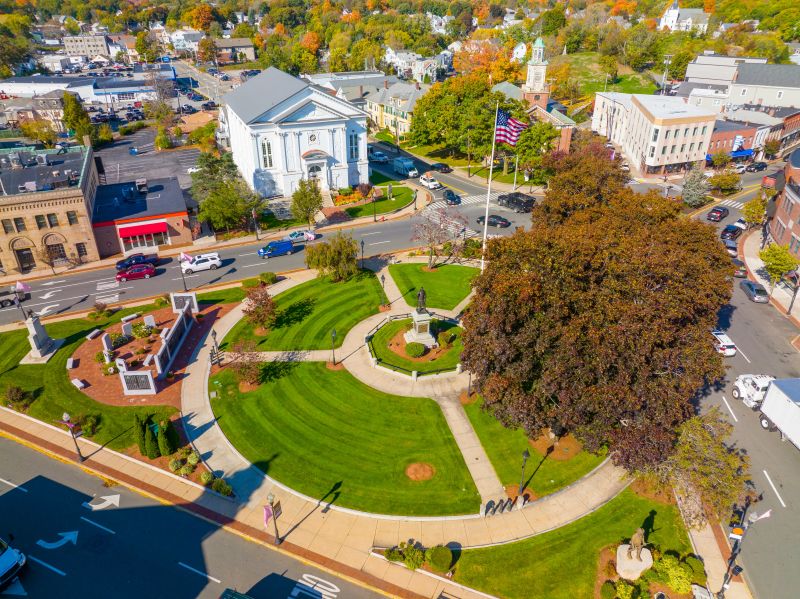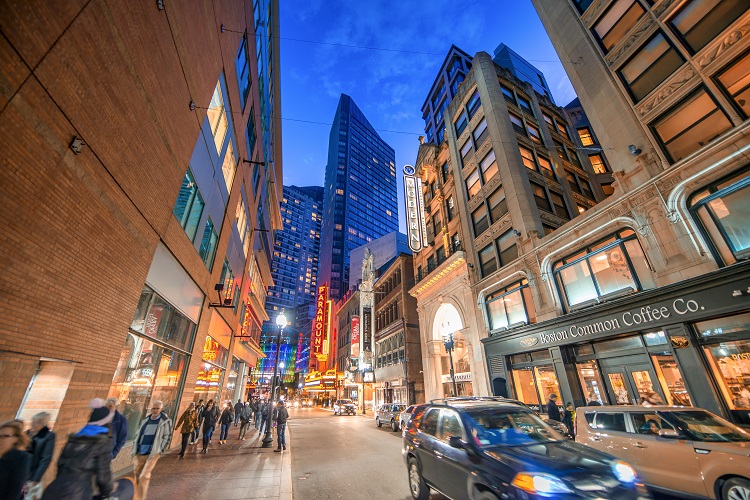
The Boston rental market is incredibly tight at the moment. The COVID 19 pandemic caused a lot of construction delays, adding further strain to a market with already limited supply and extremely high demand. The Real Time Vacancy Rate for the city of Boston is 0.42%– meaning 99.38% of Boston apartments are currently occupied. In addition, potential buyers are being increasingly priced out of the market, and find themselves having to rent for longer than they initially intended.
As the demand for rental apartments outstrips supply, many tenants can feel pressured to sign on the dotted line as soon as they find an apartment they like. While it’s important to move quickly if you find a place that meets your criteria, due diligence is still important. Make sure you are asking the following 10 questions before you move forward and rent an apartment.
1. HOW MUCH DO I NEED TO PAY?
Property owners can ask for fees and deposits before you move in, along with your rent. While you’ll obviously need to know how much you’ll be paying each month, you should also ask how much you can expect to pay before you can move into the property.
You can be charged:
- A security deposit of one month’s rent
- The first month’s rent
- The last month’s rent
- A fee for the installation of new locks
- Application fees and broker’s fees- only if you are working with a licensed real estate broker or salesperson
 2. What Are The Terms of The Lease?
2. What Are The Terms of The Lease?
Your rental agreement could be short-term, month-to-month or long-term, but a typical fixed- term lease will usually lock you into a property for at least six to twelve months. You’ll need to double-check the length of your lease to make sure you can commit for that period of time.
The terms of the lease will also include how much notice you need to give before you move out. This is often 30-60 days. However, in certain in- demand neighborhoods you may be asked to renew several months in advance.
You’ll also need to know how you should pay your rent. Often, this can be done electronically. You could also write a check to your leasing office or landlord. You may also want to ask about late payment fees.
3. Are Utilities Included?
You may think that an apartment is a perfect price — only to find out that utilities are not included.
Utilities can make a massive difference to the amount you’re paying each month. Be sure to ask if your rent includes internet, cable, gas, electric, or water. Some buildings or property owners will integrate these costs into the rent, or will simply cover the costs themselves. Keep in mind that utilities in Boston can get up to $450 per month. Renters are seeing even more increases in electricity and gas prices, around 30%, given current questionable energy policy decisions and high inflation.
A good real estate agent will be able to guide you and help you get a high and low estimate for both electricity and gas.
 4. Are Pets Allowed?
4. Are Pets Allowed?
While some Boston rentals will completely forbid dogs and cats, others will allow them on a case-by-case basis. For instance, a small dog may be allowed, but not a massive German Shepherd.
Check your lease for any fine print, and speak with the landlord if anything seems unclear.
5. What About guests and Airbnb?
Some rentals may limit the number of guests you’re allowed to have to stay each month. If you like to host family and friends, verify the number of days they can stay with your landlord first.
If you’re planning to make a little side income with Airbnb, you’ll need to see if this is allowed as well. In most cases it is not allowed. There are a number of legalities to consider with Airbnb, and other short term rentals, as well. Make sure this is covered before you sign your lease.
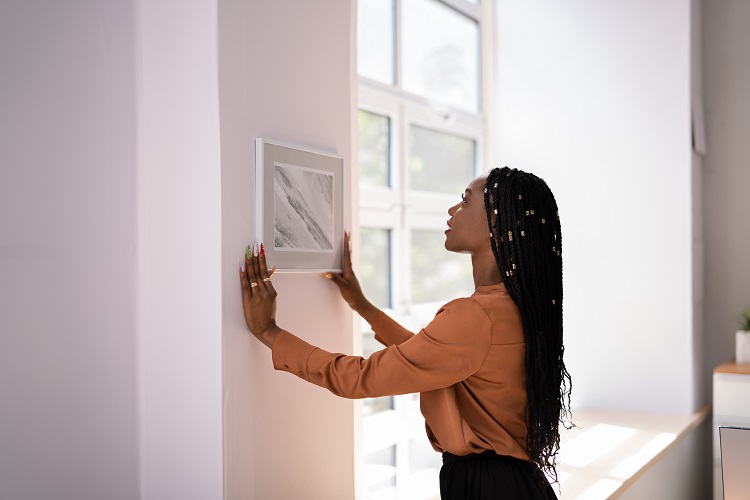 6. Can I Decorate?
6. Can I Decorate?
When you move into a new house or apartment, it’s natural to want to decorate it to make it feel like home.
Often, that means decorating. But before you add artwork, you’ll need to check if you’re allowed to decorate.
Most leases will include this information. They usually stipulate that the apartment needs to be restored to the condition you found it in.
Some landlords will even include a clause stating that you need to obtain written permission before decorating or painting. Hanging artwork, driving nails into the walls, putting up wallpaper…all of this may need to be approved. Otherwise, you may end up losing your security deposit. A safe bet is using stick-on hangers that do not damage the
wall or strip the paint if you want to hang artwork.
7. Do I Need a Co-Signer?
Most landlords will require you to pass a credit check. You’ll also need to meet an income standard. In places like Boston, many landlords require that your monthly income is at least 3 times that of your monthly rent.
That means that if you want a $2,000 apartment, you’ll need to be earning $6,000+ a month.
For this reason, it can be helpful to have a co-signer or guarantor. Often, this will be a parent, who are basically agreeing that they’ll be liable for the rent if you don’t pay.
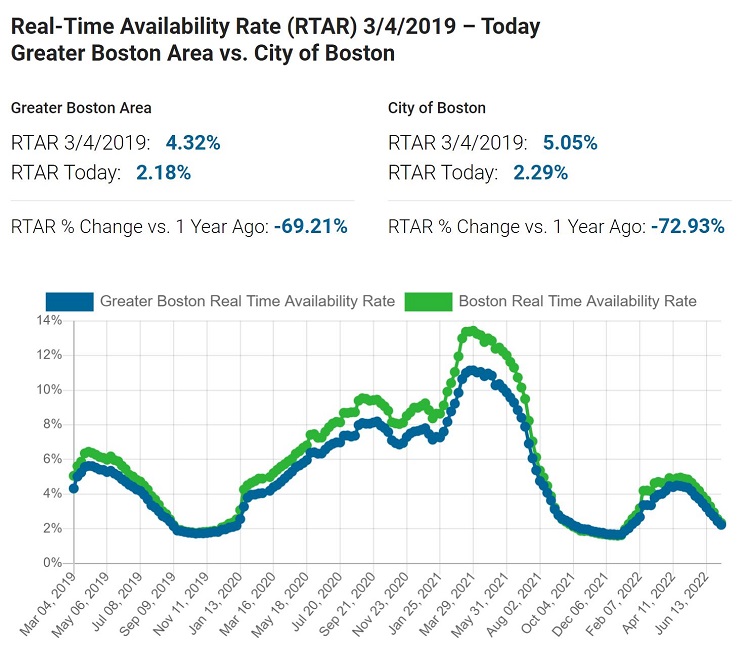 8. What is the Real Time Availability Rate (RTAR) in the Neighborhood?
8. What is the Real Time Availability Rate (RTAR) in the Neighborhood?
The RTAR (Real-Time Availability Rate) is a useful metric to use when you’re looking for the most choice in each of the neighborhoods you’re interested in living in. It provides real-time information on the percentage of apartments that are available in each Boston neighborhood.
If you find an apartment you like in a neighborhood with a low RTAR, you should probably apply for that apartment ASAP because there are fewer options in that specific neighborhood. A properly priced apartment in good condition will rent in less than a week, so don’t waste any time!
9. Do I Need Renters Insurance?
If you’re looking for Boston rentals, renter’s insurance is a good idea. It covers your property in the event of flood, fires, and sometimes even theft.
Some renter’s insurance may even cover you for any accidents or injuries that occur within the apartment. It’s often a small expense so it can be well worth purchasing it.
However, some landlords or property management firms will actually require you to have renter’s insurance, so you should ask this early on in the process.
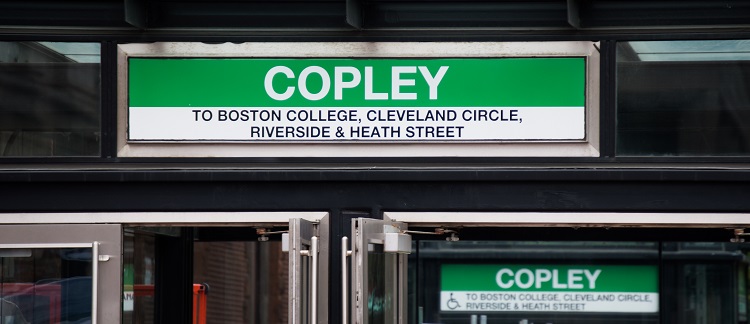 10. What are the Public Transportation and Parking Options?
10. What are the Public Transportation and Parking Options?
Everybody has different mobility needs. Those with cars will need more parking options, while those without will need reliable and nearby public transport. More suburban neighborhoods have better parking options/space, though fewer nearby public transport routes. More central neighborhoods have several MBTA train and bus connections,
though with fewer parking spaces. You should also consider the costs of paid parking in your building versus the cost of public transportation.
Ready to Begin Your Search?
As you can see, there are a few important questions you need to ask when you’re visiting Boston rentals.
You may want to make a list of your key questions, so you can have them ready to go each time you visit a new apartment.
Be sure to check out our rent calculator, so you can see how much you can afford to spend on renting in Boston.

Taylor Oliveira
Published July 13, 2022


